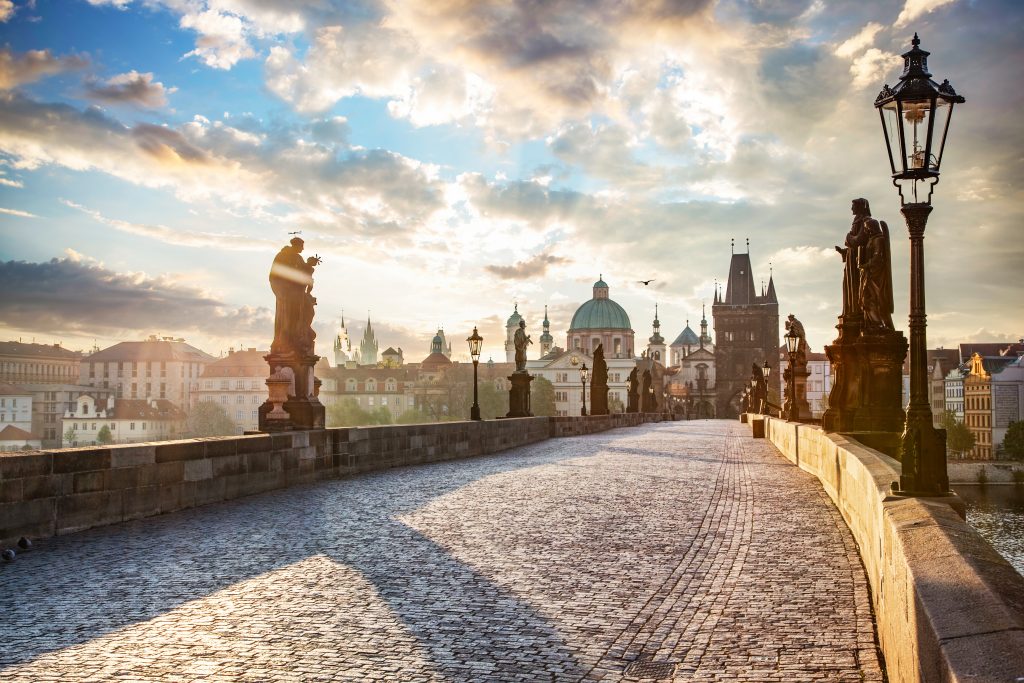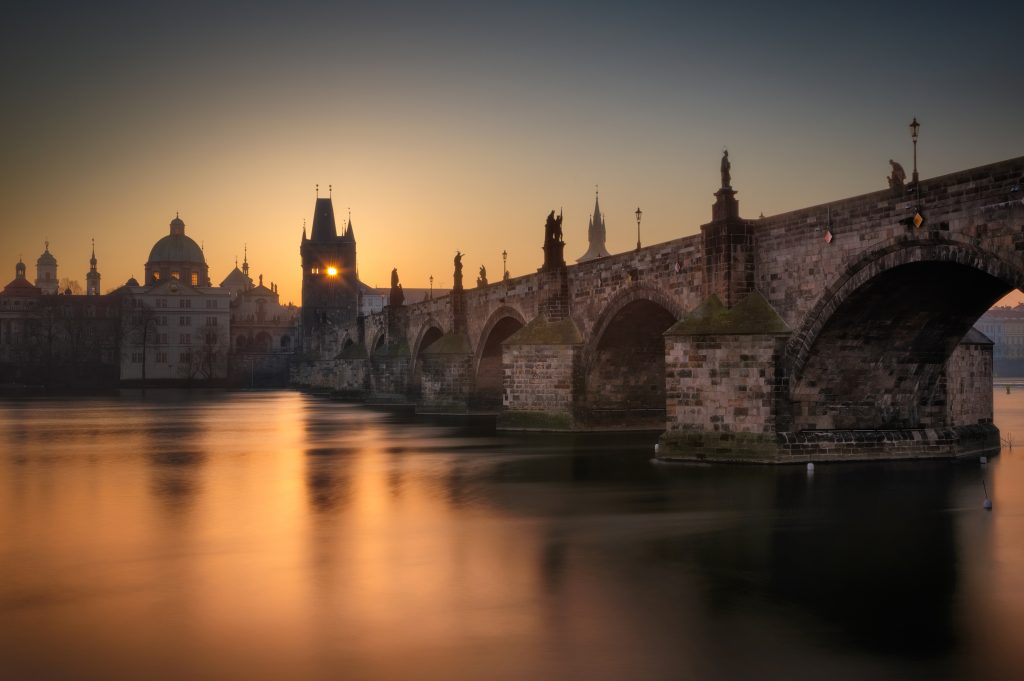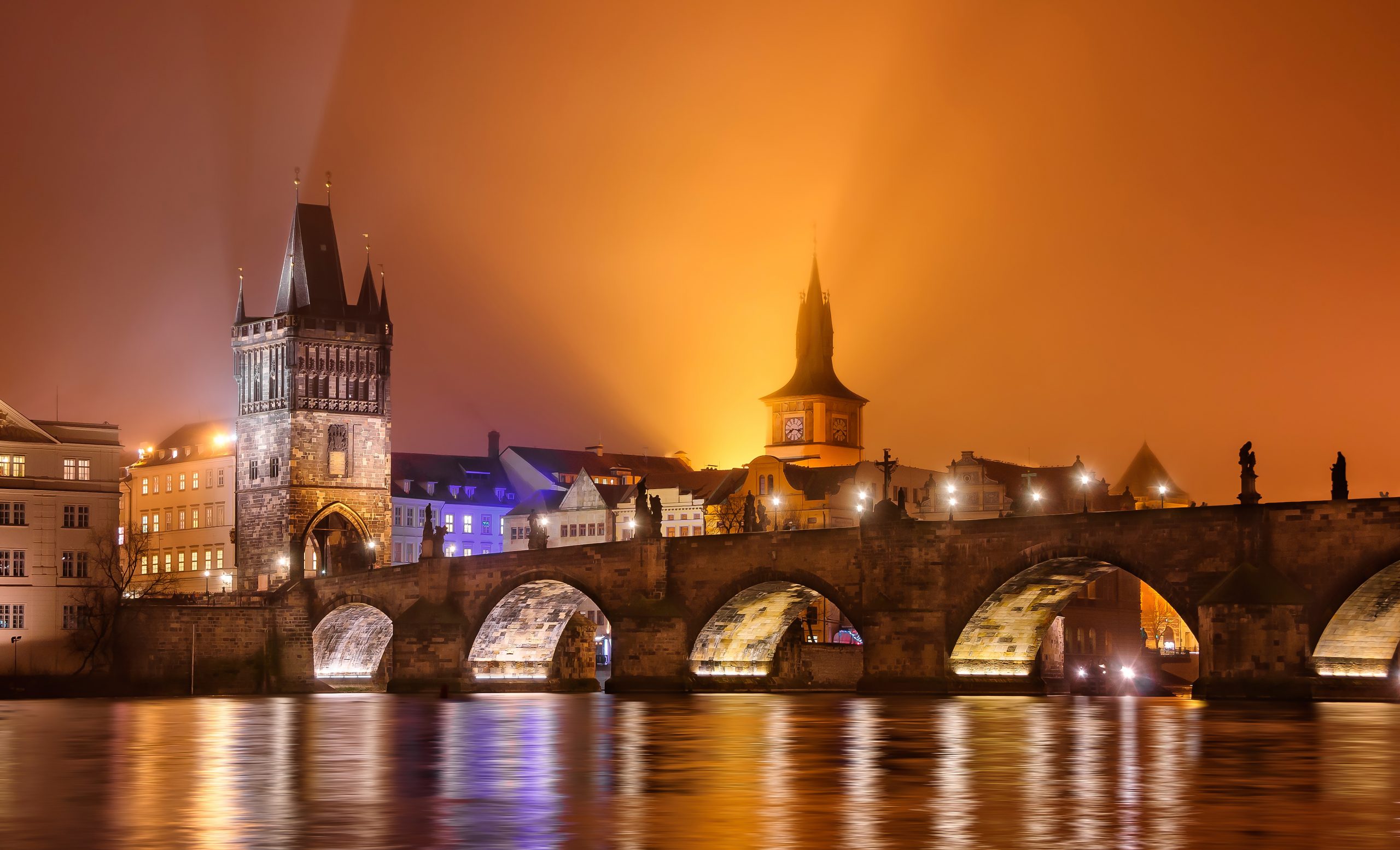Charles Bridge, an emblem of Prague’s enchanting allure, is more than just a crossing over the Vltava River. It is a monumental blend of history, artistry, and architectural brilliance that has captivated the hearts of visitors for centuries. Join us as we journey through the fascinating history of this iconic bridge, a true testament to the timeless beauty of Prague.
The story of Charles Bridge begins in 1357, a time when Prague was flourishing under the visionary rule of King Charles IV. Determined to make Prague an imperial epicenter, Charles IV commissioned the construction of a grand bridge to replace the older Judith Bridge, which had been destroyed by a flood. The cornerstone was laid on July 9, 1357, at precisely 5:31 AM, a moment carefully chosen for its palindromic sequence (135797531), believed to imbue the bridge with strength and longevity.
Designed by the illustrious architect Peter Parler, the genius behind St. Vitus Cathedral, the bridge was initially known as the Stone Bridge or Prague Bridge. It wasn’t until the 19th century that it was named Charles Bridge, in honor of its royal benefactor.
Stretching 516 meters long and nearly 10 meters wide, Charles Bridge is a masterpiece of medieval engineering. Constructed with robust sandstone blocks, the bridge’s 16 arches rest on sturdy pillars fortified with ice guards, protecting it from the river’s powerful currents. This ingenious design has enabled the bridge to withstand centuries of use and the periodic flooding of the Vltava.

One of the bridge’s most captivating features is its collection of 30 baroque statues and statuaries, added between 1683 and 1714.
Statue of St. John of Nepomuk. The first statue to be placed on the bridge, it marks the spot where this saint was thrown into the Vltava River in 1393. Touching the plaque on the statue is said to bring good luck and ensure a return to Prague.
Statue of St. Luthgard. Sculpted by Matthias Braun, this statue is often considered the most beautiful on the bridge. It depicts a vision of St. Luthgard in which she receives an embrace from the crucified Christ.
Statue of St. Wenceslas. This statue honors the patron saint of Bohemia, adding a significant historical and cultural dimension to the bridge.
Crucifix and Calvary. Originally erected in 1657, this sculpture is notable for its Hebrew inscription, added after a Jewish man was forced to pay for its creation as a punishment.
Charles Bridge has been the silent witness to countless historical events. During the Hussite Wars, it was a crucial military and trade route. In the tumultuous times of the Thirty Years’ War, it was a battleground where Prague’s defenders repelled Swedish forces.
For centuries, this bridge was the only way to cross the Vltava River, turning it into a bustling artery of commerce and culture. It linked the majestic Prague Castle with the vibrant Old Town, fostering the flow of people, goods, and ideas. The bridge’s towers, particularly the Old Town Bridge Tower, are considered some of the finest examples of Gothic gate architecture in the world.

Despite facing the ravages of time, floods, and conflicts, Charles Bridge has endured, thanks to meticulous restoration efforts. In the late 20th and early 21st centuries, extensive preservation work ensured that the bridge retained its historical charm and structural integrity. Today, it stands as a pedestrian-only thoroughfare, inviting millions of visitors to walk its storied path and soak in the panoramic views of Prague.
Declared a national cultural monument in 1962, Charles Bridge is not just an architectural gem but a symbol of Prague’s rich heritage and enduring spirit. It continues to enchant and inspire, a living link to the past and a beacon of the city’s vibrant history.
Walking across Charles Bridge is like stepping back in time. Each stone and statue has a story to tell, each view offers a glimpse into Prague’s soul. Whether you’re a history buff, an architecture enthusiast, or simply a lover of beauty, Charles Bridge promises an unforgettable experience.














